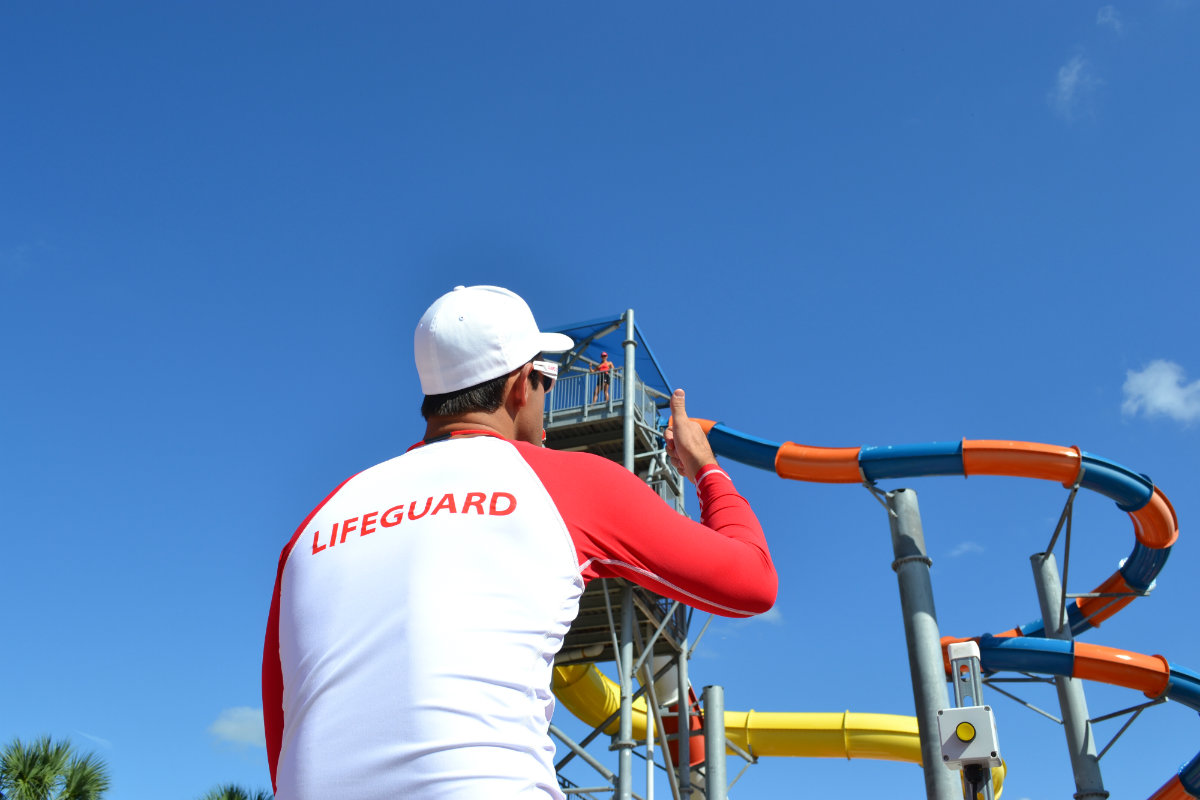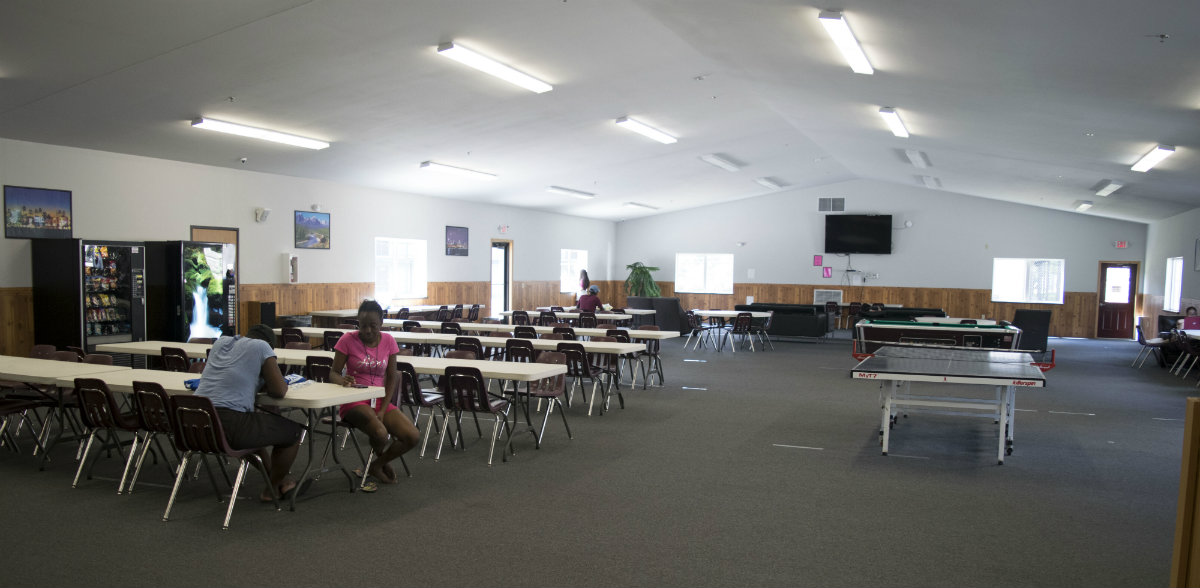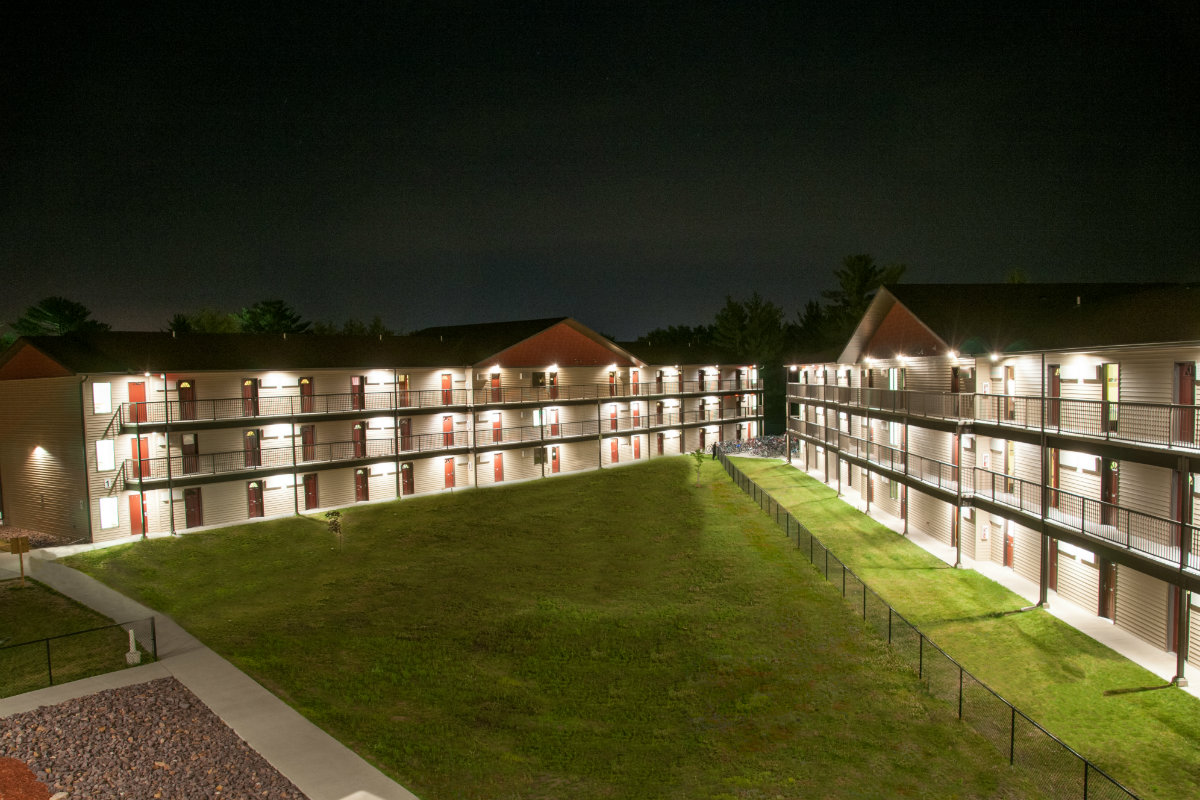Imagine traveling halfway around the world anticipating a summer of fun and comradery working alongside adventure-seeking peers in America’s waterpark mecca. Then your expectations are dashed when you discover that you’ll be living in a cramped motel room fighting four roommates for your sliver of the bed.
Many foreign college students experienced that very thing several years ago while working seasonal gigs in the Dells, an area that comprises both the city of Wisconsin Dells and the Village of Lake Delton.
The so-called Waterpark Capital of the World hosts approximately 4,000 cultural-exchange students who come here from Ireland, Ecuador and Jamaica, among other countries, through the U.S. State Dept.’s J1 Summer Work Travel program.
It is designed to give international students exposure to the Land of Opportunity, but some have left with the impression that it’s a land of opportunists — in this case, motel owners who packed them in like sardines and denied them their security deposits — or worse, turned them out to make room for the rush of tourists during an especially busy summer weekend.
“We’d see kids walking down the street with suitcases on a Friday afternoon trying to find any place to stay,” recalls Cary Brandt, chairman of the Village of Lake Delton’s housing commission. He’s also creative director at the Kalahari Resort, one of several sprawling resorts that are the community’s lifeblood.
The crowded accommodations became visible in other ways. Along the main thoroughfare, tourists were greeted with sights of beach towels hanging from hotel railings and patios cluttered with bikes and barbecue grills. And students would arrive to work in foul moods, having slept on a floor the night prior and walked or rode their bikes a mile or two to work.
But the community’s biggest concern was for the exchange students’ safety. Hotel rooms were catching fire because abundances of appliances overwhelmed aging power outlets. “Those hotels were designed for a lamp, TV set and a light in the room,” says Tom Diehl, a village trustee and civic leader. “They weren’t designed for hot plates and refrigerators and everything else.”
Diehl, who owns a popular waterski stunt show, is credited for helping transform the Dells into a waterpark wonderland by advocating for a premium resort tax in 1997. This funded the necessary infrastructure to support massive resorts. As world-class resorts raised the area’s profile as a vacation destination — it attracts four million visitors annually — family-owned lodgings struggled to compete. So the independent motor-ins and hotels began luring exchange students to stay afloat.
Waterpark operators in other parts of the country may be familiar with these struggles. In many communities where tourism turns the economic wheels, businesses depend on foreigners to do much of the seasonal labor in food service, customer service, housecleaning and lifeguarding. The problem is they don’t always have adequate housing. Many apartment complexes won’t do short-term rentals, and hotels often cap stays at 30 days.
Story continues below.
-
Pool Openings Delayed Due to J1 Visa Hang-Ups
Pool management companies say foreign lifeguards are being vetted more aggressively, slowing down the visa process.

-
H-2B Visa Expansion Does Aquatics Industry Little Good
The federal government is making 15,000 more foreign workers available to employers, but pool managers likely won’t benefit.

Sponsors — the third parties that arrange employment for J1 students — are legally obligated to ensure exchange visitors have safe, comfortable places to stay. So regions with a huge demand for help and limited housing are often left scrambling, unless a sponsor turns a blind eye to students’ living arrangements.
That’s been known to happen.
In the Dells, some sponsors ignored federal law by importing J1 visa holders without making sure the students had prior housing arrangements. “We’ve vetted those sponsors out,” Brandt says. “We said ‘If you know full well you’re putting them in a hotel room, you’re breaking the law on your end and you’re at risk of losing your ability to run a sponsorship program in our community.’”
But there was still that matter of providing legal shelter to thousands of international student workers that are the Dells’ tourism backbone. “Quite honestly, this town couldn’t survive without the J1 program,” Brandt says.
Officials discussed possible solutions. They explored incentivizing employers to accommodate seasonal staff, but that was quickly abandoned. Employers didn’t want the liability.
Then Brandt and Diehl devised a novel concept: Incentivize developers to build dedicated dormitories for J1 students. They put together an attractive package: $750,000, funded by the premium resort tax, plus a loan from a community bank.
The big question was: “Can these things sustain themselves as a business?” says Brandt. “The last thing the village wants is to end up owning a dorm.”
They did a financial analysis and determined that, at around $85 a week, dorm rooms would indeed turn a profit, and the village had its first taker.
The experiment began in the summer of 2014 with three buildings called the Hiawatha Residence Hall, centrally located between the Village of Lake Delton and Wisconsin Dells. This placed students within quick proximity to the Wilderness, Mt. Olympus, Kalahari and Noah’s Ark, among other major employers.
The project, built by Holtz Builders, now has five buildings, housing a total of 1,209 students.

Renee Szymusiak
Inside the Hiawatha Residence Hall
The village then extended the offer to resorts to build dorms for their own employees. This would alleviate stress on the Hiawatha, which has been operating at maximum capacity. Last year, the Wilderness built its first dorm, which houses around 240 employees. A second dorm is in the works. The Kalahari and Mt. Olympus each have their own 200-plus student housings, as well.
All the dorms are modeled on the Hiawatha buildings to meet J1 housing ordinances. Brandt estimates that they accommodate about 90% of the Dells’ J1 workforce. “The hotel problem just started taking care of itself because these kids [now have] a choice,” Brandt says. “Why would they want to stay in a hotel from the ’70s and share a double bed with someone they never met?”
These dormitories meet stricter safety standards than hotels and motels. Security is onsite 24/7, rooms must be of a certain size, no more than two or three students are allowed per room, and buildings must be off the main strip. Enforcing this has also quashed another emerging concern: Vacation rentals offering to host J1 workers in their basements and spare rooms. Only about half of those arrangements meet code.
Key to the program’s success is a J1 enforcement officer. To be clear, he’s not a police officer. Foreign students have a deep-seated fear of police officers, officials say. Rather, he’s a community ambassador to foreign workers, someone to consult when they’re wrongly denied deposits or fall prey to an unapproved rooming house.
If workers lose their jobs, they also lose their rooms. This helps enforce good behavior. Security checkpoints ensure no one is sneaking booze into the dorms.
The dorms also help foster a tremendous cross-cultural experience, which Brandt describes as the “United Nations of J1 students.” This is what the Summer Work Travel program is all about.
While the Dells has some unique attributes making this program possible, such as ample land and an almost 100% tourism-based economy, officials believe it can be replicated elsewhere.
“Basically I’d like to believe we’re a model for how a community should handle J1 students,” Diehl says.
Cities such as Gatlinburg and Pigeon Forge in Tennessee and Branson, Mo. could benefit from a similar program. The trick, Diehl says, is to educate the community on how safe, comfortable housing can attract quality help from around the world.
And if the worst comes to pass — if President Trump makes good on a campaign promise to abolish the J1 program — it’s not as though the village’s efforts will be wasted. If that happens, officials say they can consider offering rooms for free, or at a deeply discounted rate, if that’s what it takes to attract local college-age workers, a group that’s notoriously difficult to recruit these days.
With the housing problem solved, local leaders would like to tackle another issue vexing exchange students: Transportation. For many, bicycles are their only option. Accidents and violations are a frequent occurrence. One possible solution, says Brandt, would be a community shuttle system.
Ultimately, the Dells can take pride in having one of the most hospitable J1 programs in the nation.
Students no longer have to take shelter where they can find it. These days, their biggest complaint is that they want faster WiFi.



